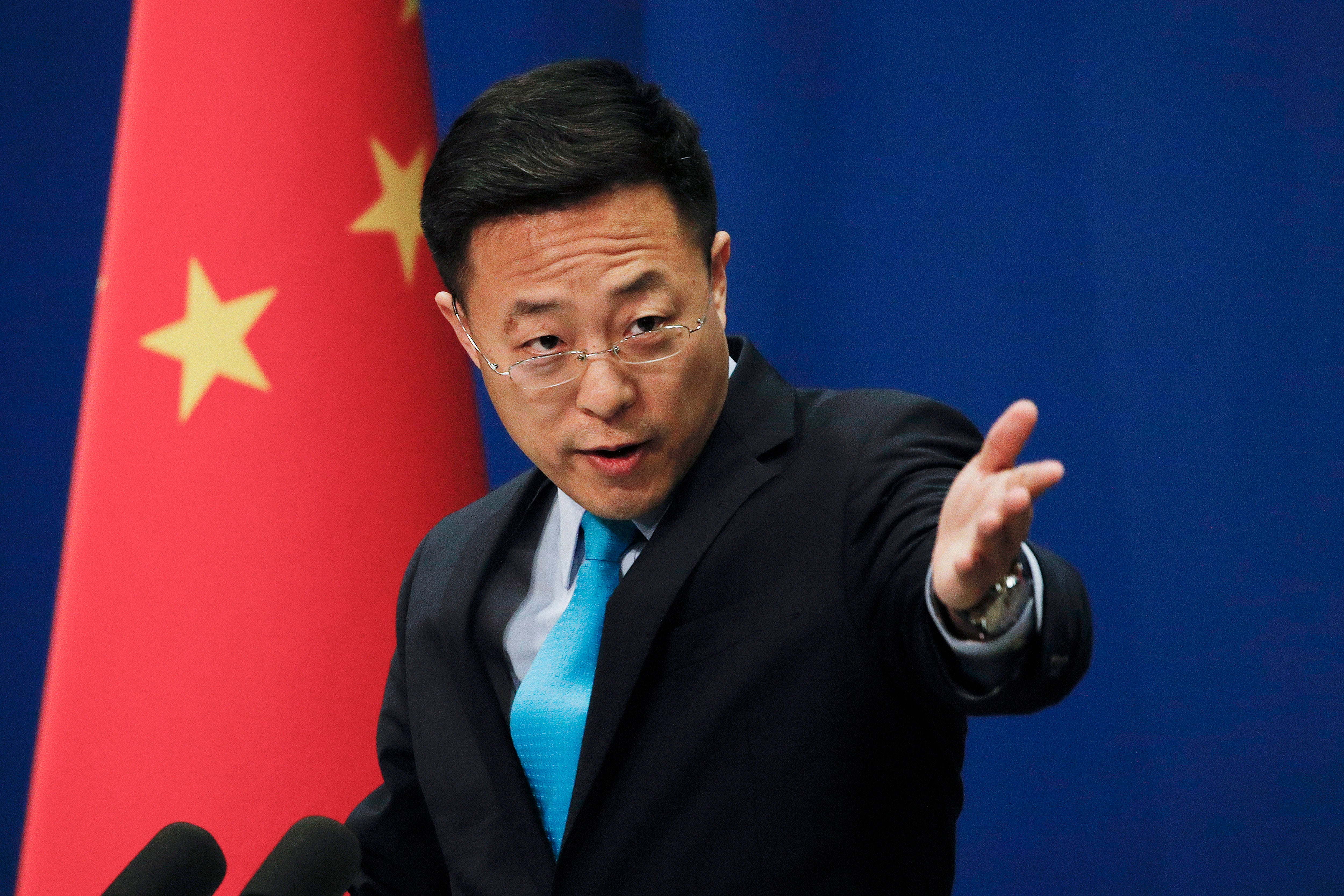China says US diplomatic boycott violates Olympic spirit
China is accusing the U.S. of violating the Olympic spirit by announcing an American diplomatic boycott of February's Beijing Winter Games

Your support helps us to tell the story
From reproductive rights to climate change to Big Tech, The Independent is on the ground when the story is developing. Whether it's investigating the financials of Elon Musk's pro-Trump PAC or producing our latest documentary, 'The A Word', which shines a light on the American women fighting for reproductive rights, we know how important it is to parse out the facts from the messaging.
At such a critical moment in US history, we need reporters on the ground. Your donation allows us to keep sending journalists to speak to both sides of the story.
The Independent is trusted by Americans across the entire political spectrum. And unlike many other quality news outlets, we choose not to lock Americans out of our reporting and analysis with paywalls. We believe quality journalism should be available to everyone, paid for by those who can afford it.
Your support makes all the difference.China on Tuesday accused the United States of violating the Olympic spirit by announcing an American diplomatic boycott of February’s Beijing Winter Games.
Foreign Ministry spokesperson Zhao Lijian’s comment came amid a barrage of Chinese criticism of the announcement by the Biden administration on Monday.
Zhao on Monday vowed China would respond with “firm countermeasures,” but gave no details.
White House press secretary Jen Psaki told reporters on Monday that the administration will fully support U.S. athletes competing at the games but won’t dispatch U.S. diplomats or officials to attend.
Psaki said the U.S. has a ”fundamental commitment to promoting human rights” and that the U.S. “will not be contributing to the fanfare of the games.”
The Chinese Embassy in Washington tweeted that politicians calling for a boycott are “doing so for their own political interests and posturing."
“In fact, no one would care about whether these people come or not, and it has no impact whatsoever on the #Beijing2022 to be successfully held," the embassy said.
China's mission to the United Nations called the boycott a “self-directed political farce."
“The U.S. just wants to politicize sports, create divisions and provoke confrontation," it said.
It wasn't clear what officials Washington might have sent, and Zhao on Monday said no invitation had been extended by China.
It wasn't clear whether other countries would follow the U.S. lead. Japanese Prime Minister Fumio Kishida on Tuesday said Japan would make its own decision “from the perspective of national interests, taking into consideration the significance of the Olympic Games and the significance of Japan’s diplomacy. This is the basic attitude of our country.”
Japanese Chief Cabinet Secretary Hirokazu Matsuno said it remained unclear what the diplomatic boycott means and that a decision on officials attending would be made “at an appropriate time by comprehensively considering various circumstances."
“In any case, Japan hopes that the Beijing Winter Games will be held as a celebration of peace in line with the principles of the Olympic and Paralympic Games,” Matsuno said.
The dispatching of high-level delegations to each Olympics has long been a tradition among the U.S. and other leading nations. Then-President George W. Bush attended the opening of the 2008 Beijing Olympic Summer Games. First lady Jill Biden led the American contingent to the Summer Olympics in Tokyo this year and second gentleman Doug Emhoff led a delegation to the Paralympic Games.